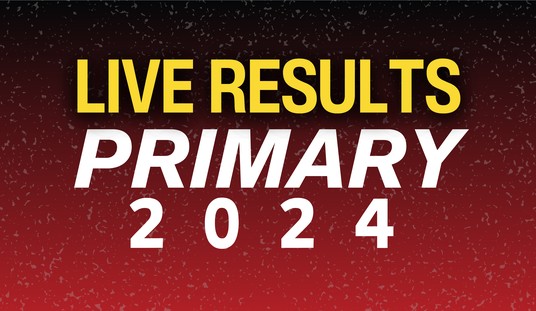The perception that the Obama administration is exceptionally two-faced concerning budget matters is, believe it or not, unfair. Granted, Pres. Obama calling his multi-trillion-dollar spending plan with its unprecedented deficits "a new era of responsibility" seemed to invite skepticism, by which is meant open laughter. In truth, the president is using a new formula for federal expenditures that, when understood the correct way, amounts to great budgetary wisdom.
Unfortunately, few people understand it the correct way. But just as paying taxes is patriotic, learning this transcendent vision of federal expenditures — Obama's Revenue Relativism formula — is essential to good citizenship.
Expressed mathematically, this formula is 80x < y, where x equals "a lot of money" and y equals "a miniscule amount of money." Simplified explanations of the variables come courtesy of White House press secretary Robert Gibbs.
Now on the face of it, that equation would appear to violate basic rules of mathematics. We assume that "a lot of money" (x) is greater than "a miniscule amount of money" (y), based on a pedestrian understanding of those concepts. How could 80 times a lot of something make it less than miniscule?
It's a fair question. Answering it is the key to understanding revenue relativism.
Here is the formula in practice, from an April 20 press conference. Gibbs is trying to explain it to ABC's Jennifer Loven and Jake Tapper in the context of Obama's plan to cut $100 million from the same federal budget he already plans to increase by half a trillion dollars:
LOVEN: The deficit’s giant. $100 million really is only a step.
GIBBS: But no joke.
LOVEN: You sound like you’re joking about it, but it’s not funny.
GIBBS: I’m not making jokes about it. I’m being completely sincere that only in Washington, D.C. is $100 million not a lot of money. It is where I’m from. It is where I grew up. And I think it is for hundreds of millions of Americans.
Recommended
Note: yes, technically, $100 million to hundreds of millions of people amounts to only a few cents per person. Before you make the mistake of thinking that doesn't sound like a lot of money to folks, however, remember the 2008 elections, which proved people are awed by change.
Skipping ahead a bit:
TAPPER: You were talking about an appropriations bill a few weeks ago about $8 billion being minuscule — $8 billion in earmarks. We were talking about that and you said that that…
GIBBS: Well, in terms of — in…(CROSSTALK)
TAPPER: …$100 million is a lot but $8 billion is small?
As Tapper's question demonstrates through its innocent incredulity, the genius of revenue relativism is in showing how, for example, $8 billion can be small while one-eightieth of that amount can be big. The derivation of the formula provides the missing element Tapper and the rest of us need.
Obama's Revenue Relativism formula derives from O'Brien's Law of Reintegration. As you know, O'Brien's Law is expressed by the equation 2 + 2 = x, where the variable, x, is independent of any past or future value of x. (O'Brien's Law and its practical applications are discussed in detail in George Orwell's work Nineteen Eighty-Four.)
In the Obama variation, 80x < y, even though both x and y describe amounts measured in dollars, they are in dollars independent of each other. That is because they represent dollars viewed from different perspectives: inside Washington and outside Washington.
At the press conference, Gibbs was clearly comparing dollars-inside-Washington with dollars-outside-Washington. Outside of Washington, $100 million is a lot. Inside Washington, an amount 80 times that ($8,000 million; i.e., $8 billion) is not a lot; it really is tiny. Political expediency determines, of course, when to use which perspective.
For the uninitiated, the superiority of Obama's formula is difficult to see at first. It's not unusual to hear it dismissed outright, even crudely so (e.g., with "stupidest thing I've ever heard," "what a crock," and similar sentiments). It takes a while to learn, but with mastery comes mental discipline.
A true revenue relativist can even withstand the temptation to ask how, in the name of all that's holy, a $500,000 million planned increase reduced by just $100 million could possibly be called a "cut."

























Join the conversation as a VIP Member